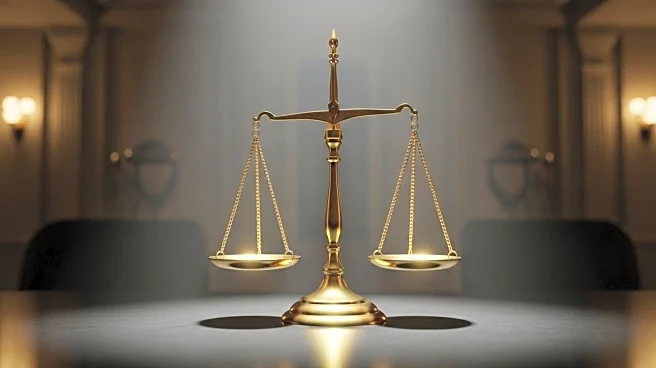What is the story about?
What's Happening?
The U.S. Supreme Court is reviewing a case brought by Illinois Republican Congressman Mike Bost, who is challenging the state's mail-in voting law. Bost argues that the law, which allows ballots to be counted up to two weeks after Election Day if postmarked by the deadline, unfairly extends the election period. The case centers on whether federal candidates have the right to challenge state election laws, rather than the legality of Illinois' mail-in voting itself. Bost's lawsuit was previously dismissed by lower courts, which ruled he did not have standing to sue. During oral arguments, Bost's attorney, Paul Clement, argued that candidates should have standing to challenge electoral rules, as they are directly affected by them.
Why It's Important?
The Supreme Court's decision in this case could have significant implications for election-related lawsuits across the United States. If the court rules in favor of Bost, it may lower the bar for candidates to challenge election laws, potentially leading to an increase in litigation. This could affect how elections are conducted and how results are certified, impacting both political parties and the electoral process. The case also highlights ongoing debates about mail-in voting and election integrity, issues that have gained prominence in recent years, particularly following the 2020 presidential election.
What's Next?
The Supreme Court's ruling could set a precedent for future election-related lawsuits by political candidates. If Bost is granted standing, it may open the door for other candidates to challenge election laws on similar grounds. This could lead to increased scrutiny of mail-in voting and other electoral processes, potentially influencing legislative changes at the state level. Stakeholders, including political leaders and advocacy groups, are likely to react to the court's decision, which could shape the landscape of election law in the U.S.
Beyond the Headlines
The case raises broader questions about the balance between state and federal authority in regulating elections. It also touches on the ethical implications of challenging electoral rules based on speculative harm, as opposed to concrete evidence of injury. The outcome could influence public trust in the electoral process and the perceived legitimacy of election results, particularly in closely contested races.
















